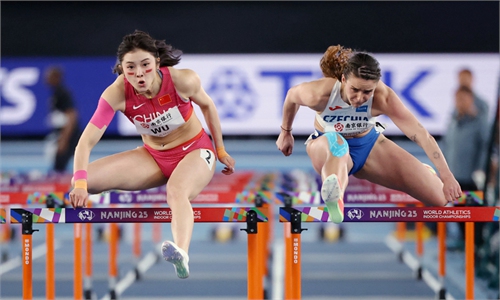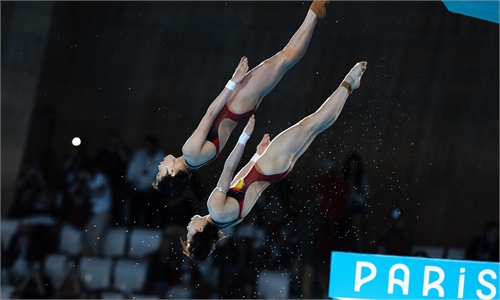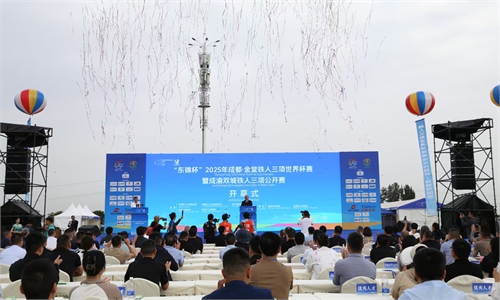ARTS / CULTURE & LEISURE
Veteran champions instill their legacy into youth development and strategic sports planning
From glory to guidance
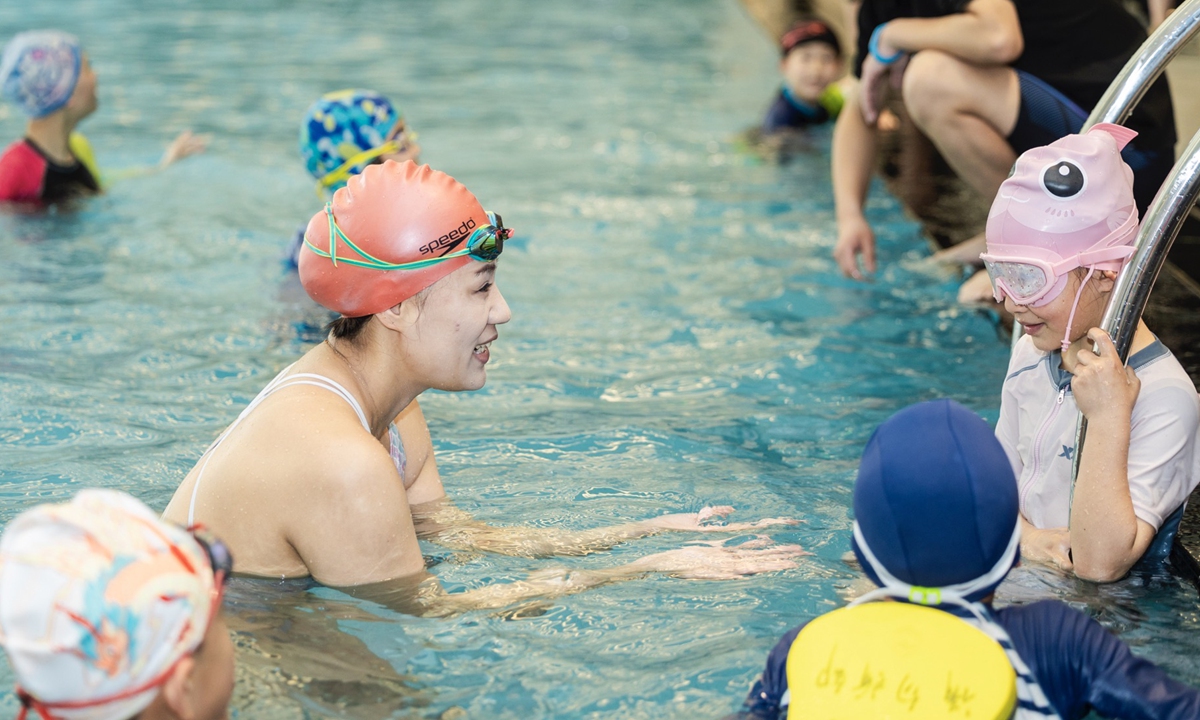
Zhu Qianwei teaches children how to swim in Suzhou, East China's Jiangsu Province, on January 15, 2025. Photo: Courtesy of Zhu Qianwei
At the just-concluded 2025 (42nd) China Sport Show on Sunday, Chinese track and field star Su Bingtian drew attention for his evolving roles. Now serving as the dean of the school of physical education at Jinan University, a veteran athlete preparing for the 15th National Games, and a mentor for China's next generation of sprinters, Su embodies the multiple pathways available to athletes after their competitive careers.
His story reflects a broader national effort to support athletes in transition. China recently announced the launch of the 2025 internship and training program for retired athletes at sports schools. Hong Jiang from the General Administration of Sport of China emphasized the government's strong commitment to athlete support, noting the joint efforts of sports authorities at all levels to advance athlete welfare policies.
Hong encouraged the participants to build confidence through learning, apply their knowledge in practice, and develop lifelong learning habits.
The Global Times interviewed two former athletes who once made significant achievements in the sports world to learn how they have transitioned into new fields and found renewed purpose after retirement.
Legacy in motion
As a former national team swimmer, Zhu Qianwei once stood on top of the podium at the FINA World Championships in Rome, where she and her teammates won gold in the women's 4×200-meter freestyle relay and set a world record.
After retiring, she stepped away from the familiar waters of the pool and pursued academic study overseas. For the first time, she was no longer an athlete, but a student, facing language barriers, dense theoretical coursework, and a learning curve that required starting from scratch.
"The structure and discipline of training -- the rhythm, the standards are just as valuable in shaping focus, time management and teamwork," she told the Global Times.
These insights inspired her to start a youth swimming club. Upon returning to China, Zhu began teaching in schools, seeking to translate the discipline and logic of professional sport into growth paths that young students could understand and embrace.
"Many children initially come to practice just for exercise," Zhu said. "But through training, they begin to learn how to complete each move with intention, how to wait, how to work together. Isn't that the true meaning of sports?"
For Zhu, sport is more than skill or scores. It's a channel of energy, extending from the body to the mind, eventually forming a resilient inner strength.
Zhu knows well that this inner strength doesn't come easily. Shortly after her world championship triumph, she was hospitalized for over a month due to an autoimmune disorder. Many believed it would mark the end of her swimming career. But driven by sheer determination, she made a remarkable comeback at the 2010 Asian Games in Guangzhou, once again standing atop the podium.
"That illness helped me realize that what truly carries a person forward isn't external recognition — it's inner resilience," she said. "No matter which lane you're in, that internal strength is the true foundation of a champion."
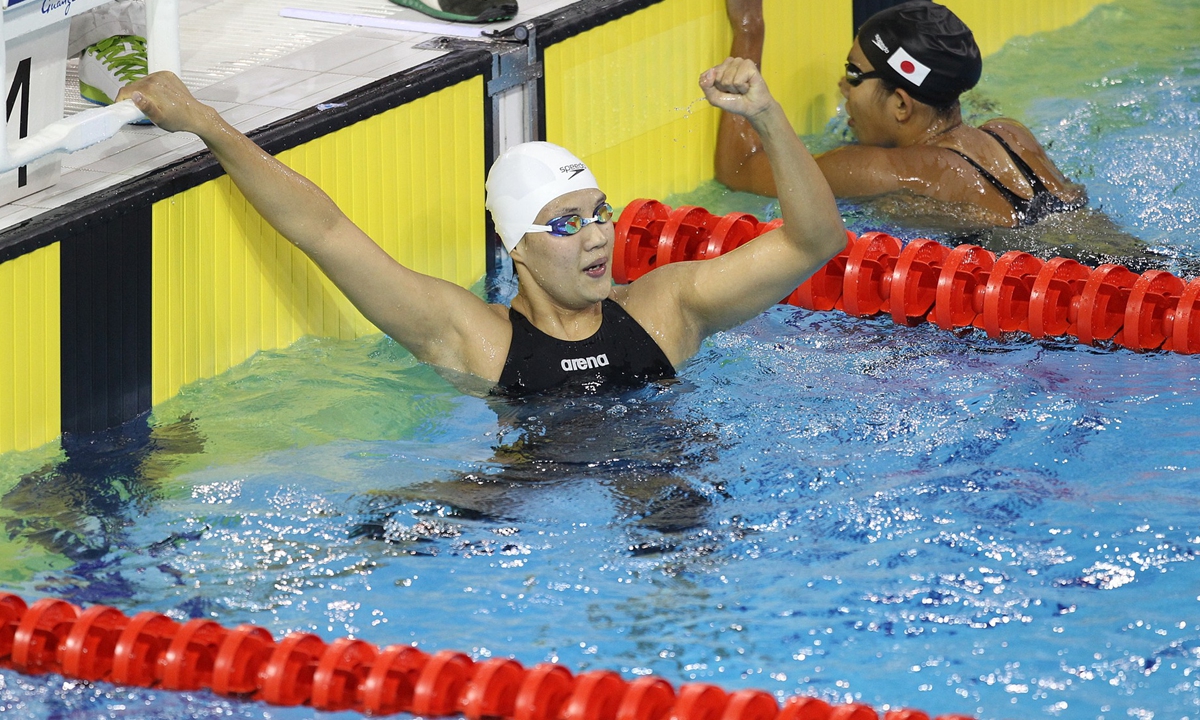
Zhu Qianwei competes in the women's 200m freestyle final at the 2010 Asian Games. Photo: VCG
Stage to strategy
Early in the morning, Chen Fengping starts her day with quiet rituals — a short reading session, light exercise, a moment of reflection. Once a leading member of The Chinese women's foil team in the late 20th century, she won multiple national championships including team gold medals at the National Games in 1979.
After retiring from competition, Chen chose an uncommon path by joining the civil service. She later played roles in the bidding, organization, and operations of the 2008 Beijing Olympic Games, making contributions to China's sports administration and major event coordination, according to Chen.
"Medals don't define a lifetime, but the resilience shaped on the training field gives you the strength to stay grounded no matter where you stand," Chen told the Global Times on Monday.
"I don't want today's young athletes to struggle the way we did — relying solely on toughness and pushing through hardship," she said. "If we can help create a clearer, more scientific path for them, then what we endured gains greater meaning."
To Chen, fencing taught far more than technique — it instilled calmness, decisiveness, and the courage to face challenges head-on. Her journey from foil champion to policymaker reflects the growing recognition that the discipline, clarity, and resilience honed in sports can serve as powerful assets in shaping institutions and guiding future generations.
From the arena to public service, from the pool to the classroom, both Chen and Zhu exemplify the new paths emerging for China's retired athletes. With a long-term perspective, they are redefining the value of sports in their way, not as an endpoint at the medal stand, but as a lifelong discipline, a mindset passed on to younger generations, helping expand the role of sport from elite competition to a broader force in society.
